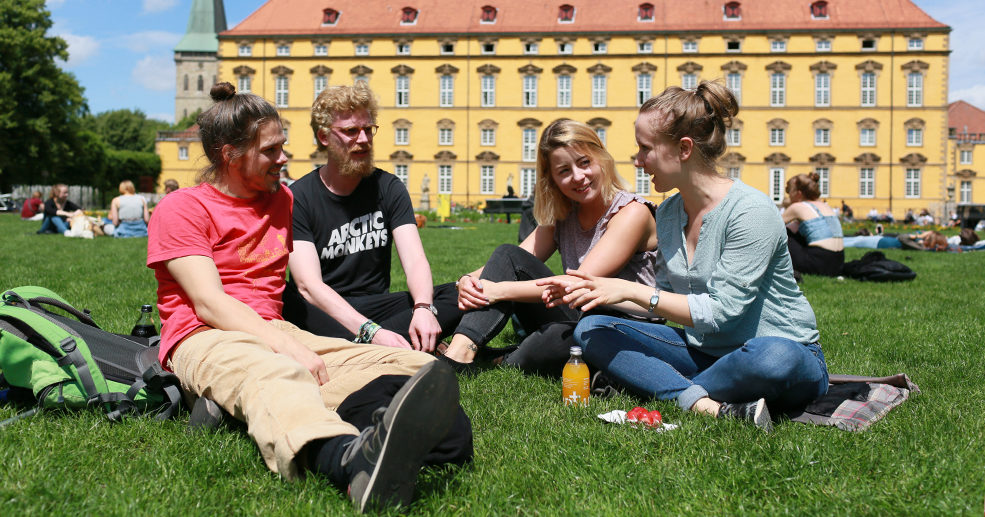 Workshop
Workshop
Workshop on Sustainability of Open Educational Resources
This international workshop is part of the 4th X5GON meeting and will focus on sustainability solutions for OER technologies
With Open Educational Resources, opportunities for better and more exciting teaching are being made available, shared in an increasing way. In the European project X5GON we are investigating ways in which Artificial Intelligence can enhance the learning experience and how teachers can be encouraged to produce and share their lectures in the knowledge that these will be made simple to find and use by other teachers and learners.
The creation, maintenance and quality assurance of OER are resource-intensive processes, which are provided by many supporters and volunteers. The appreciation of this achievement should consist not only of the use of this learning material, but also of creating lasting sustainability. This creates a foundation that motivates people to contribute to OER and drive technological development.
The EU-project “X5GON” and the University of Osnabrueck invite to the international workshop “Sustainability of Open Educational Resources” in Osnabrueck, Germany on March 12th 2019. The workshop will take place in Osnabrueck Castle, which is the main building of the University of Osnabrueck.
Main topics
- Open Educational Resources
- Sustainability of OER and (open-source) software
- Technologies for OER
Registration
If you want to join the event, please fill out the registration form.
Programme
| 09:00‑09:15 | Welcome and Introduction to the X5GON project
prof. John Shaw Taylor, UCL and UNESCO Chair in Artificial Intelligence X5GON is an EU project (2017–2020) with eight partners from the UK, France, Slovenia, Germany and Spain. It is intended to help students and the general public learn effectively and enjoyably by providing a personalized route through appropriately prioritized Open Educational Resources (OER). |
| 09:15‑09:30 | Lessons learned from a vocational learning portal in India
Colin de la Higuera, University of Nantes, UNESCO Chair in OER The mySangham learning portal in India (http://mysangham.aerl.in) addresses all sorts of jobs and skills and proposes online courses for audiences which may not be typical in Europe. We will present the portal and the learning challenges they face, as well as some perspectives for X5GON. |
| 09:30‑10:15 | iLearn : Map your online learning
Eric Cherel, CRI iLearn will index and qualify learning resources through artificial intelligence and massive crowdsourcing, let people analyse their own learning path, help them search for pedagogical resources and evaluate them as a community. |
| 10:15‑10:45 | Coffee break |
| 10:45‑11:15 | Opencast Video Management Software – “10 years of sustainable open-source development”
Olaf A. Schulte, ETH Zürich The Opencast Video Management Software is an open-source project to manage educational video assets. The software development started in 2009 and was only funded for one year by the Mellon Foundation and the William and Flora Hewlett Foundation. Since then the academic community managed on their own to keep the software development alive, with currently around 15 active developers, a handful of companies offering Opencast compatible recorders and around 300 universities worldwide, who adopted the system. |
| 11:15‑12:00 | What is the OER World map?
Jan Neumann, OERWorldmap The goal of the OER World Map is to illuminate the global Open Educational Resources movement by facilitating interaction and collaboration. It collects and shares open data about actors and activities related to OER. The supplied information supports a wide range of use cases. |
| 12:00‑13:15 | Lunch |
| 13:15‑14:00 | UNESCO strategies on OER
Mitja Jermol, Jozef Stefan Institute, UNESCO Chair in OER The Recommendation on Open Educational Resources (OER) is a landmark commitment by UNESCO Member States to promote and strengthen learning and education via OER. |
| 14:00‑14:45 | Cooperation of German IT & education actors to jointly design OER-promoting, networked IT infrastructures across states Annett Zobel, Torsten Simon, edu-sharing.net e.V. and JOINTLY (BMBF project) If all OER affine IT experts would join common activities it would still be a challenge to develop well-functioning and comfortable OER-friendly infrastructures. It needs cooperation between states, educational institutions, libraries, experts and projects like X5gon. In the In the German OER community developers and operators of learning platforms, educational servers, school cloud systems work together. You and we are developing concepts and prototypes and work in transfer projects. Lets do this together! |
| 14:45‑15:00 | Coffee break |
| 15:00‑16:00 | SIDDATA – Individualization of Studies through Digital, Data-Driven Assistants
Sebastian Osada and Felix Weber, University of Osnabrueck With the use of this currently developed assistant, students should be encouraged to define their own educational goals and to follow them consistently. In the future, the data-driven environment will be able to give hints, reminders and recommendations appropriate to the situation, and allow comparisons with different reference standards. These tips and recommendations should help students to make informed decisions for their own individual educational path (website). |
| 16:00‑16:45 | Automated License detection in documents
Renato Garita Figueiredo, University of Osnabrueck As part of an effort to facilitate the management of copyrighted material for educational institutions, the University of Osnabrück developed a system for classification of documents according to their copyright status. This system can help educational institutions develop better solutions to manage the data stored in their servers and it can be extended to build more tailored classification procedures that rely on the integration of data from multiple features extracted from the documents and their metadata. |
| 16:45‑17:00 | Wrap-up and Discussion |










